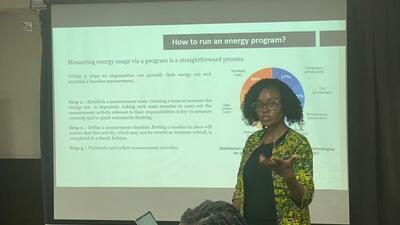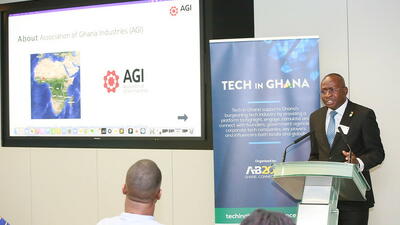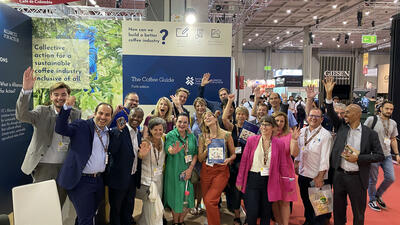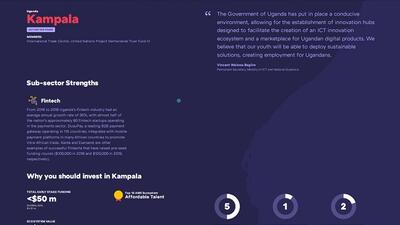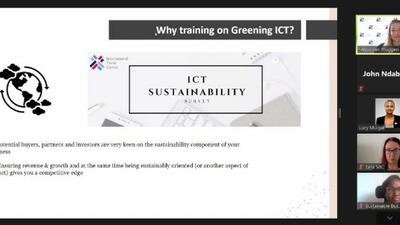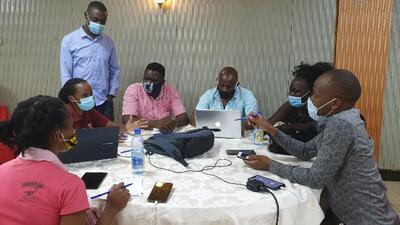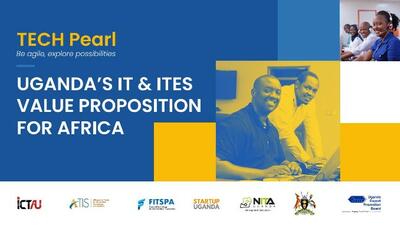
Taking Companies from Local to International Success: The Crucial Role of Export Marketing Coaches
Providing international markets with affordable tech products out of Africa is a win-win for Ugandan entrepreneurs. But the road to export success can be rough, particularly for startups with small teams and scant global business experience.
“It takes time to mature into the export market,” said Isaac Neuwelt, CEO of Neuwelt Limited, a research-based IT and media company based in Uganda. “There are the challenges of resources, operational costs, how to prepare internally, how to meet international standards, and finally access to market knowledge and information.”
In response to the challenges faced by entrepreneurs, NTF IV Uganda developed a multi-year coaching programme built around an Export Marketing Plan (EMP) to assist 37 Ugandan IT-based small and medium enterprises to overcome those hurdles.
The companies were divided into 18 “Gold” (already exporting) and 19 “Silver” (aspiring exporters) companies. Prior to the support, the majority of the companies had not developed formal business or management strategies.
Four Ugandan coaches trained by an international consultant sponsored by NTF guided the companies toward improved competitiveness, beginning with an analysis of their capabilities and their goals, then working closely with them to fill the gaps.
Going Global
“It started with helping them envision where they wanted to be in 5 years, then articulating a mission statement, setting their strategic objectives and engaging in critical thinking about the export market,” said Joseph Walusimbi, one of four coaches chosen to mentor the companies from 2018-2021. “It was a rigorous process.”
Walusimbi, who has 22 years of experience in the commercial, development and education sectors, mentored 8 Gold companies in the critical area of capacity development. The goal was to enable companies to grow beyond local markets and generate more business.
“We knew that going global would expose us to a wider range of markets and market potential, as well as elevate our quality and skill standards,” said Neuwelt. “Being in Uganda and serving a client in Saudi Arabia or Switzerland gives me a sense of satisfaction and confidence,” he added.
Coach Winnie Lawoko-Olwe worked with both Gold and Silver companies on improving their business processes and organizational efficiency, defining their unique selling propositions and emphasizing the key investment principles of return and growth.
“The key was to understand who they were, where they wanted to grow as a company and how they wanted to measure success,” explained Lawoko-Olwe, whose background is in strategic business development, stakeholder and public sector governance and entrepreneurial development.
The EMP training pushed companies like Neuwelt to evaluate their products, governance and leadership. “It helped us identify the challenges and eventually build a more inclusive and stable team,” Neuwelt said.
The Covid Crash
The Covid pandemic sent vulnerable companies in Uganda into a tailspin. Businesses lost clients, production took a dive, and some offices suffered break-ins and had all their computers stolen. Faced with the unprecedented economic challenge, the NTF IV coaches and enterprises had to reassess their goals.
“We had to do a reality check and hit the pause button on the EMP pursuits and instead concentrate on survival,” said Walusimbi. “Some companies had to downsize their staff or offer them half pay. Some were significantly affected. We had to make sure these companies survived before they could continue their journey to exports.”
To help the firms survive the economic downturn, the coaches helped them categorize their customers in terms of incoming value and focus their resources on the top earners.
“These companies were looking for a lifeline and guidance on how to navigate these turbulent waters of the pandemic. The exercise helped them streamline and prioritize,” Walusimbi said.
Back on Track
Surviving Covid, concluded Walusimbi, was a learning process. “We had some really good wins, and we are concentrating on making sure our companies stay afloat. As the situation changes and normalizes, we will work to help attain their original export related objectives.”
Neuwelt leaned heavily into the lessons learned during the NTF IV EMP coaching to get his company back on track.
“I was able to talk to my team on the realities of the situation and then innovate. Although we lost some clients, we started diversifying our services and survived,” Neuwelt said. “I feel we are now ready to use what we gained from the EMP coaching to push further into international markets.”
The Netherlands Trust Fund (NTF) IV is based on a partnership between the International Trade Centre and the Dutch Centre for the Promotion of Imports from developing countries and funded by the Dutch Ministry of Foreign Affairs.




